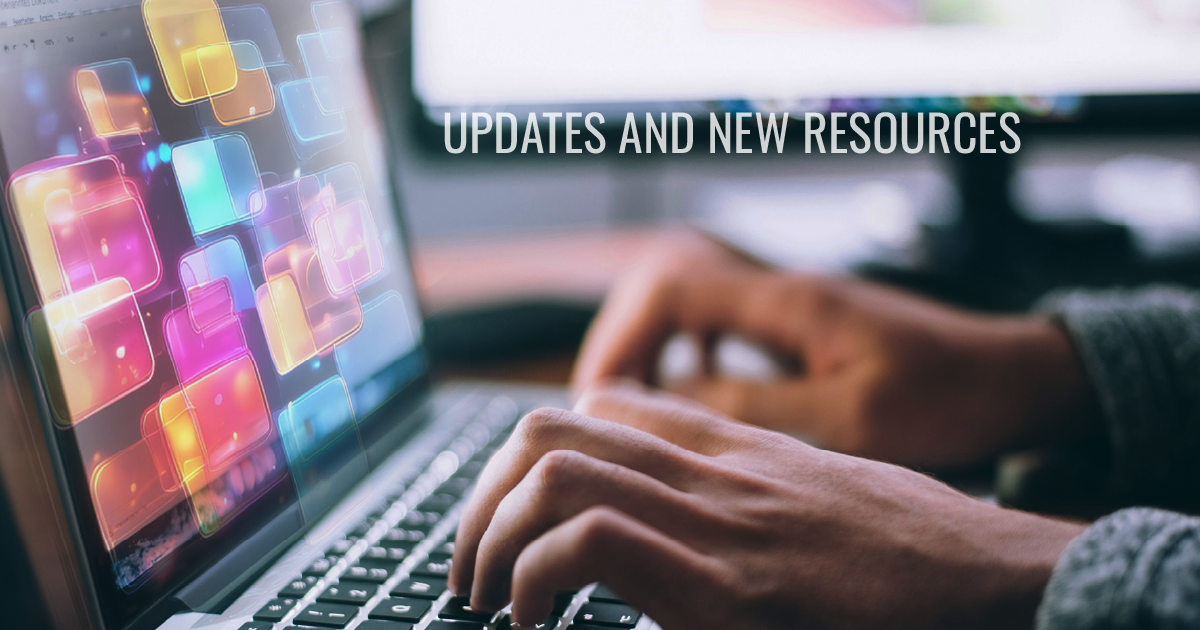
By SMU Libraries - Research & Data Services Team
Welcome back to our returning researchers, and a very warm welcome to those joining the SMU community for the first time! As we launch the new academic year, the SMU Research & Data Services Team from SMU Libraries are thrilled to share exciting updates and resources available to all researchers.
Whether you're diving into a groundbreaking new project, continuing vital work, or just beginning to explore the research landscape at SMU - discover powerful new datasets like Nielsen, access premium AI-powered search tools, and enhanced open access publishing support -- all designed to give your work a significant edge.
Read on to explore what's new and see how the library can power your research journey in the months ahead!
New Databases and Resources
Nielsen Datasets are available
We currently subscribe to the following Nielsen datasets - Homescan Consumer Panel Data, Retail Measurement Services (RMS) Retail Scanner Data and Ad Intel Data.
These are high quality, very granular panel datasets of interest to business & accounting (e.g marketing), economics and social science in general. For example, you have both household level panel data (Homescan Consumer Panel) and store level panel data (Retail Scanner Data) and combined with other longitudinal data have been used for all sorts of research from the panel structure of Nielsen's household, store, and advertising files supports rigorous longitudinal analyses across marketing, economics, public-health, and accounting domains.
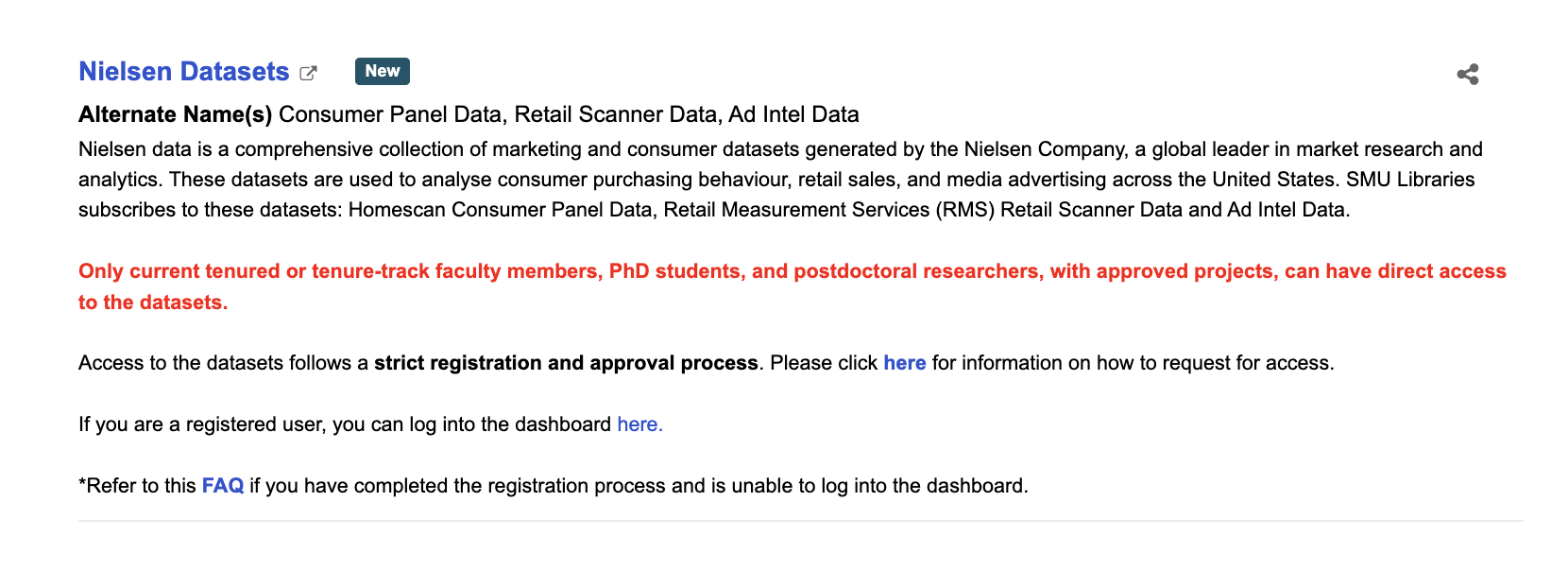
You have probably heard of these datasets but if you have not, you can look at this Undermind.ai Report for ideas on how these datasets have been used in academic Research.
PressReader
By popular demand, we have subscribed to PressReader, a digital newsstand featuring more than 7000 of the world's most popular newspapers & magazines!

Writing, Publishing and Research impact related
Support for Open Access Publishing - Article Processing Charges (APC)
SMU has signed deals with two major publishers -- Cambridge University Press (see details) and Association for Computing Machinery (ACM) (see details) which enable researchers who are the corresponding authors of papers to publish open access with no additional charges. See other deals we have with publishers.
In addition, from April 2025, SMU is committed to support the Article Processing Charges (APC) when SMU authors publish in selected top-tier journals. Please refer to this article for more details.
Release of Journal Citation Report (JCR) 2025 and Google Scholar metrics 2025
Like clockwork, Clarivate released their Journal Citation Report 2025 in June 2025.
A change this year is a slight change in the calculation of the Journal Impact Factor. When calculating the JIF numerator, citations to and from retracted publications are excluded.
To access Journal Impact Factors in the Journal Citation Report.
If you are a fan of Google Scholar, Google has also released their 2025 Scholar Metrics which is a journal level ranking like JCR but based on the Google Scholar index.
Discovery related news
"AI" features continue to be incorporated into our academic search tools. For example, this is how AI is being incorporated into finance related databases
Here are some highlights.
- Primo Research Assistant -- this is our default library search that is enhanced with AI. Currently in beta, try it here.
Existing Subscriptions to Undermind.ai, Scopus AI, Scite.ai and SciSpace
We continue to subscribe to Undermind.ai and Scite.ai. (register with smu email to get access to premium account)
The ever popular - Undermind.ai in particular has been enhanced with many new features such as alerts, improved reports that detect Foundational work, Adjacent work with enhanced Timeline summaries.
Scite.ai assistant provides even more settings including the ability to choose between models like GPT o4-mini and Claude 3.5-Haiku. Scite assistant also provides a "Table mode" that creates tables of studies.
SciSpace -- now offers SciSpace Deep Review, a agentic deep search view akin to Undermind.ai.
Enhancements to traditional Databases platforms
Many existing databases have now added summarization features for individual documents to their interfaces. Here are some major examples.
Proquest Ebook Central Research Assistant
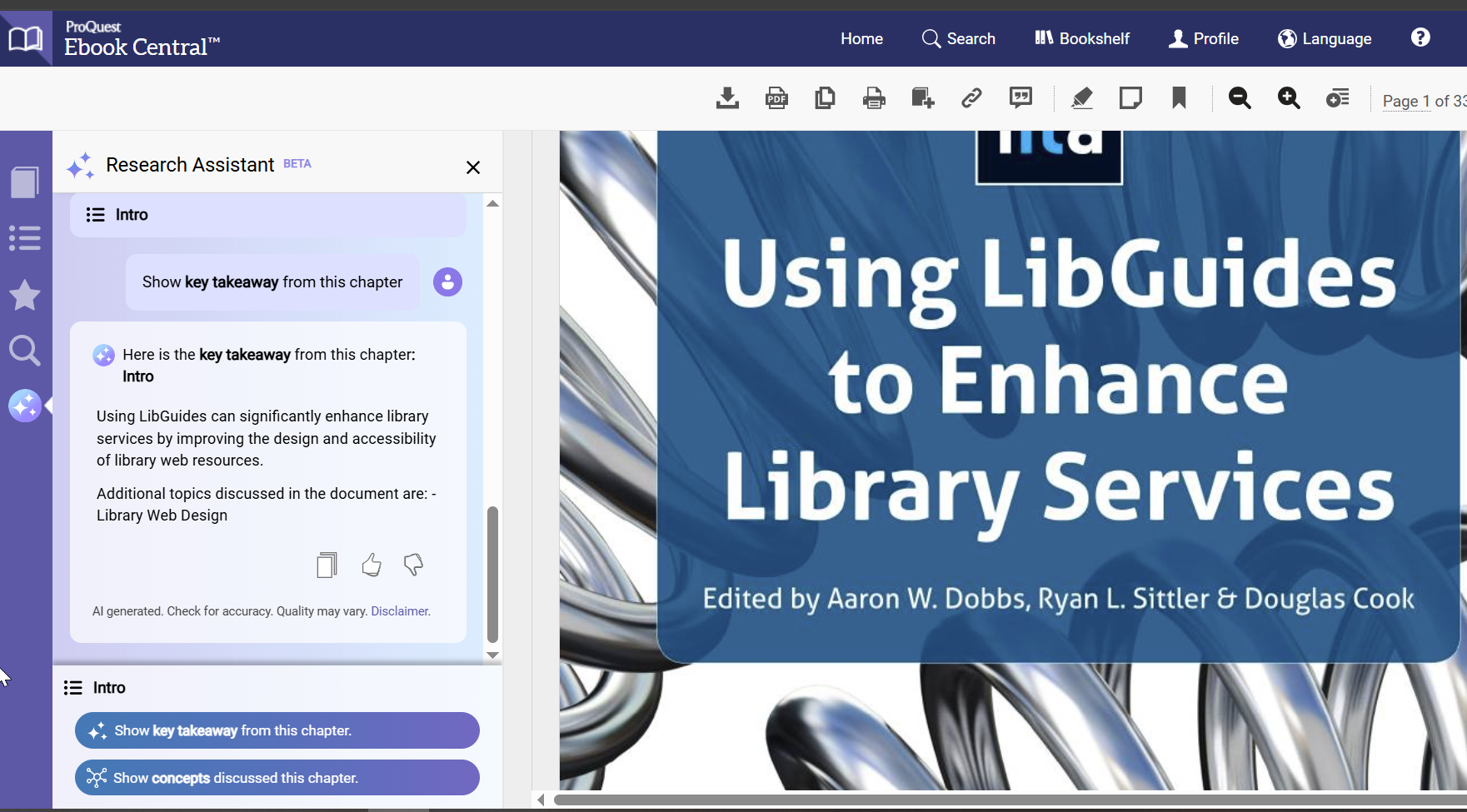
ProQuest Ebook Central Research Assistant Interface Proquest Dissertations & Theses Global Research Assistant
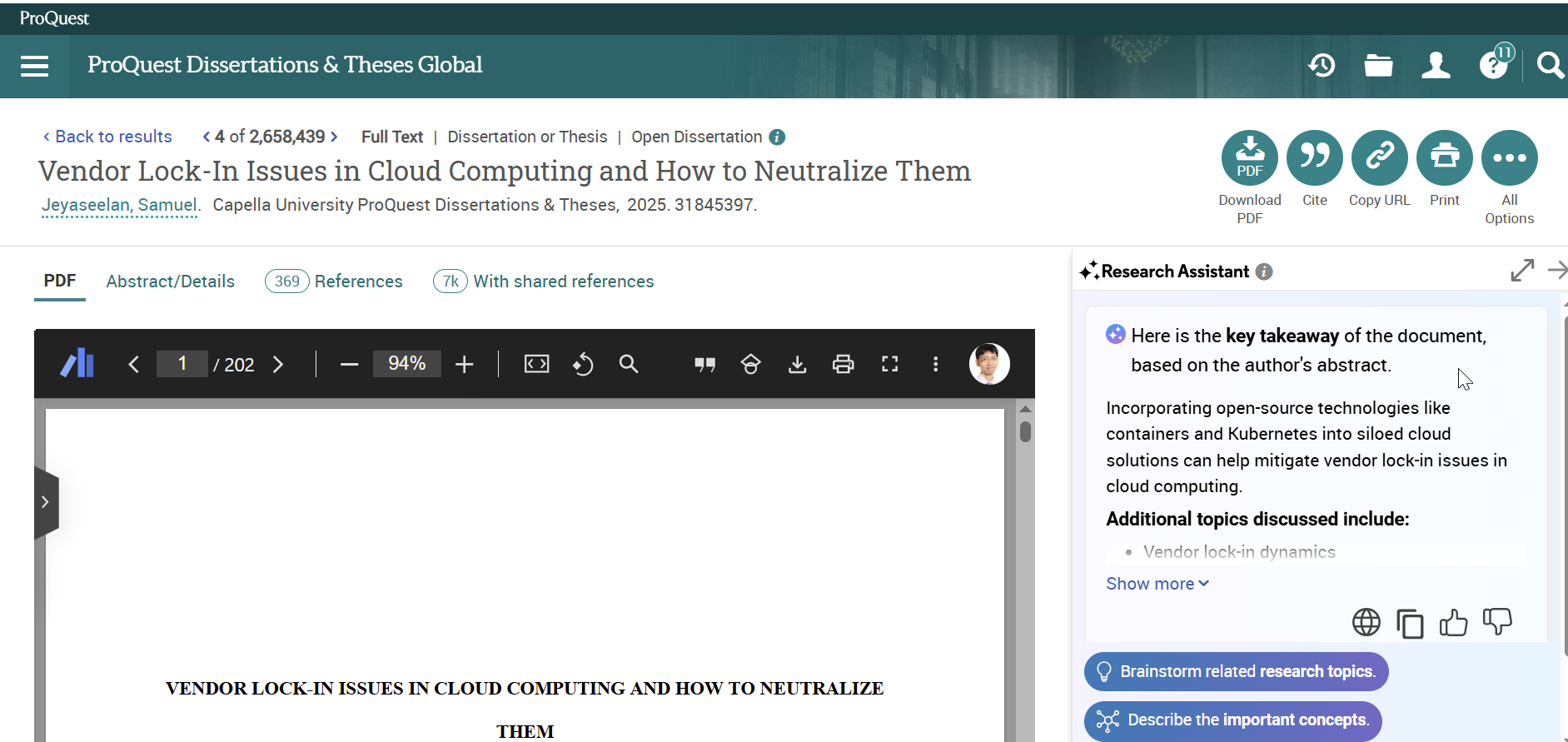
ProQuest Dissertations & Theses Global Research Assistant EBSCOhost AI insights -- available in most EBSCOhost databases (excluding APA databases e.g. APA PsycArticles)
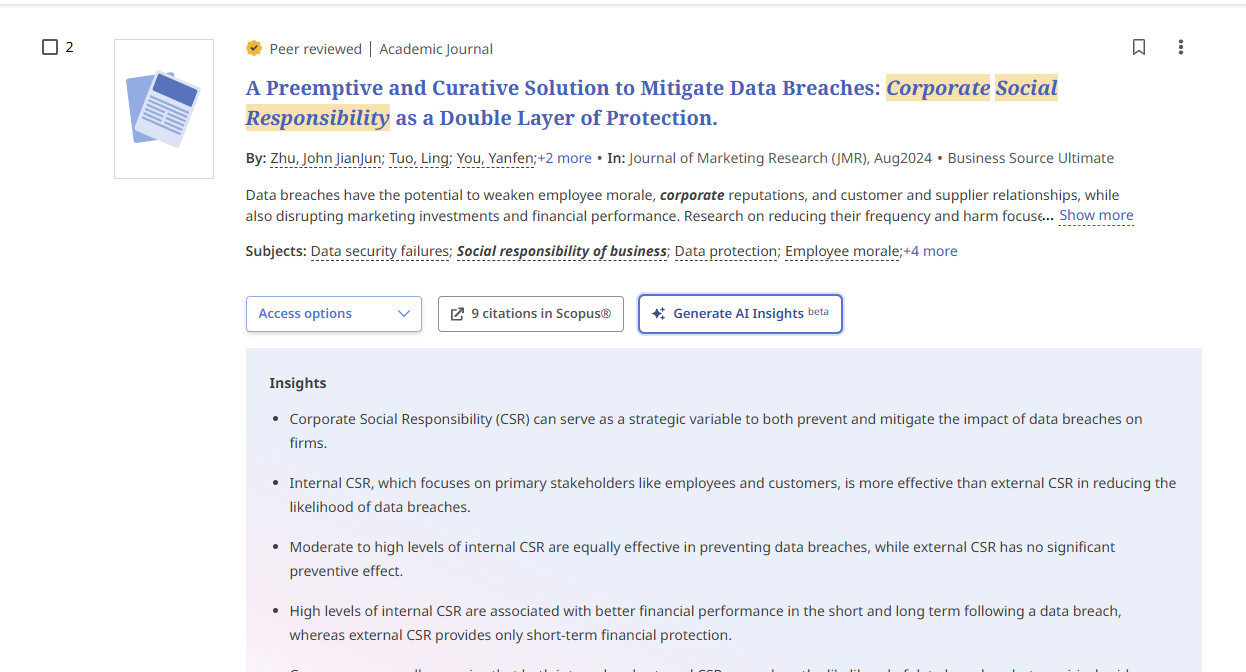
EBSCOhost AI Insights Feature These features generally use LLMs via Retrieval Augmented Generation for summarization which can be inaccurate at times, exercise caution when using them!
Besides AI summarization, Web of Science, Ebscohost also added optional search modes.
Ebscohost's Natural Language Search (NLS) mode uses a LLM to convert your input into a Boolean Search before running the search as per normal.

EBSCOhost Natural Language Search Mode Web of Science Smart Search
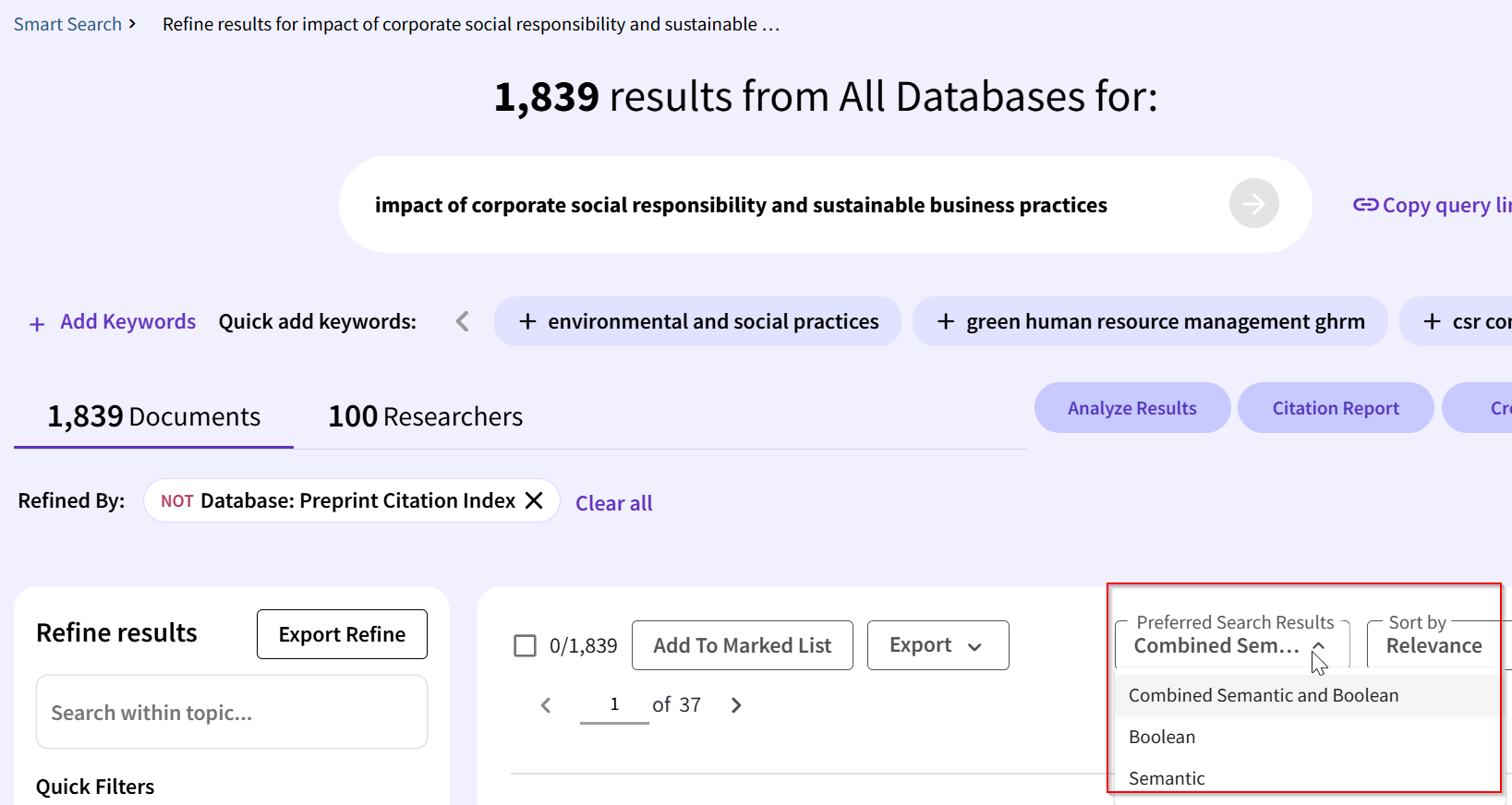
Web of Science Smart Search Interface
Confused on which ones to use? Refer to our article - Lost in the AI Search Maze? Here's Your Guide to Choosing the Right Tool or sign up for our Skill Myself Up sessions from end of August to September to learn more.
Conclusion
We're excited to bring you these new resources, tools, and enhancements to support your research, publishing, and discovery in the new academic year. Whether you're diving into Nielsen datasets, exploring AI-powered search assistants, or publishing open access with no APCs, there's never been a better time to leverage the full range of what the library offers.
Have questions or need help navigating any of these tools? Reach out to us or join our upcoming Skill Myself Up sessions---we're here to help you make the most of your research journey in 2025 and beyond!